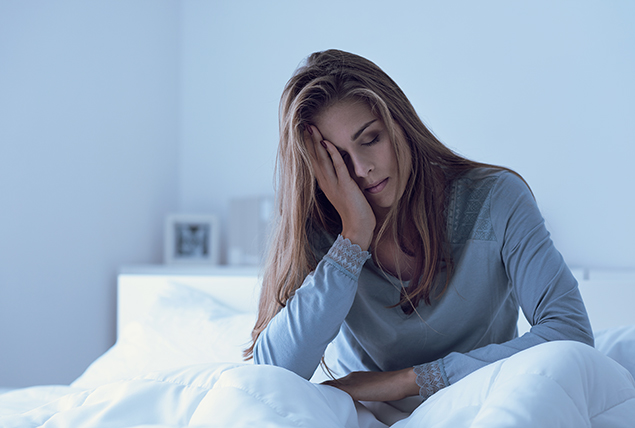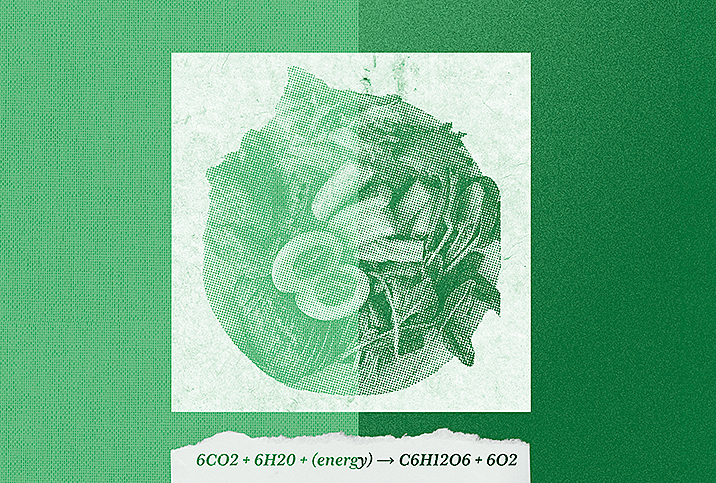These 'Normalized' Symptoms May Indicate Hormonal Problems

Many women don't realize that certain body signals may indicate an imbalance in hormones. Certain symptoms may be just the tip of the iceberg, while other issues of greater or lesser severity may be hiding the unseen side.
Hormones are responsible for regulating processes in your body. Imbalance occurs when levels are out of range, with a deficiency or excess of a specific hormone. Even small changes can be significant to your body.
Why do you have a hormone imbalance?
"Hormonal imbalances can be caused by any big stressors in a woman's life. Any time the body undergoes big transitions—such as pregnancy, menopause or chronic disease—hormonal imbalances can happen," said Salome Masghati, M.D., a board-certified OB-GYN based in Largo, Florida.
Although hormones may fluctuate at different stages of life, it doesn't mean you should live indefinitely with symptoms such as extreme fatigue, mood swings and menstrual cycle disorders. It's necessary to be aware of these imbalances and take action.
"We can improve quality of life by addressing health issues and hormone imbalances. You don't need to just 'deal with it' or blame it on age," said Doni Wilson, N.D., a nutrition specialist and bestselling author based in New York.
What habits negatively impact hormones?
When hormones are functioning properly, they send messages to the organs about what to do. Women can have imbalances with estrogen, progesterone, testosterone, thyroxine, insulin and cortisol, among others. These imbalances are sometimes related to unhealthy habits.
"The greatest risks I see in my practice are poor diet, exposure to chemicals and toxins from foods and environment, and the effects of stress," said Jordan Geller, M.D., who is board-certified in endocrinology, diabetes and metabolism, and internal medicine, and has practices in Los Angeles and Palm Beach, Florida.
Although many women think their symptoms are normal and ignore them, in fact, there may be a health problem that needs to be treated. However, a hormonal imbalance can also be due to lifestyle factors, according to Geller.
"Eating processed foods, alcohol—even small amounts on a regular basis—lack of regular daily activity and poor sleep hygiene are all common things that can negatively impact our hormones," Geller explained.
Therefore, a break in habits may help you improve your hormonal health.
Main symptoms of hormonal imbalance
Your body's signals can be very clear, influencing not only your physical health but also your emotional well-being. Symptoms can appear in different ways from woman to woman, depending on which hormones are affected and the causes.
"Symptoms can vary and can be unspecific. They can vary from heavy periods, menstrual migraines, mood swings, brain fog, fatigue, constipation to breast tenderness, anxiety or more," Masghati said.
Additional symptoms of a hormonal imbalance include:
- Weight gain. A variety of problems associated with hormones can cause weight gain and difficulty losing weight, especially localized as abdominal fat.
- Low libido. A drop in estrogen and testosterone levels may be shown with decreased sexual desire.
- Fatigue. This is one of the common symptoms and can be caused by thyroid imbalances. If you are sleeping well and still feel tired, it may be due to your thyroid hormone levels.
- Chronic acne. You should consider pore clogging and hormonal changes during your menstrual cycle, but if the acne never goes away, it may indicate an excess of androgens.
- Hair loss. Although a certain amount of hair falls out every day, excessive hair loss may indicate a hormonal imbalance, such as low estrogen levels.
- Mood swings. Estrogen fluctuations can cause mood swings—irritability, depression, anxiety, nervousness—especially related to premenstrual syndrome and in the perimenopausal and menopausal stages.
- Irregular menstruation. Hormonal alterations may result in the menstrual cycle not arriving on the date of the month that it should. Some conditions contributing to irregular periods are amenorrhea and polycystic ovary syndrome (PCOS).
Other symptoms that may point toward a hormonal imbalance include:
- Vaginal dryness
- Sleep disorders
- Digestive problems
- Headaches
- Unusual hair growth
- Increased thirst
- Heat flashes
- Nerve pain
- Muscle and joint pain
Stress or hormonal imbalance?
The routine and demands of daily life can drag us into a cycle where poor self-care and living in constant stress have become normalized. However, neglecting our bodies is not an option.
People often silence many health problems by blaming stress and ignoring the signs, but the symptoms will not go away if left untreated.
"Anxiety, heart palpitations, irregular periods, weight changes or hair loss are often thought just to be from stress, but are often signs of a hormone imbalance," Geller said.
Long periods of stress may contribute to these endocrine system imbalances because high levels of cortisol are released. So a change to a more leisurely routine may help.
Finding the cause
"There is so much I can do to help women," Wilson said, indicating that the cause can be found by performing different tests and, from there, providing support to rebalance your hormones. "You don't have to deal with sleepless nights, pain, discomfort and recurrent infections, or rely on medications when we can find the cause and address it."
Based on her research, Wilson said the key is to approach each patient individually with a self-care program, placing special attention on clean eating, adequate sleep, recovery activities and exercise.
What to do to regulate hormones
You can take several steps to regulate your hormones, including:
- Healthy diet. Adequate nutrition is essential in any circumstance, but with hormonal problems, it's a basic pillar. "First step is to identify the correct imbalance," Masghati said. "If a woman is lacking nutrients, then correction of those imbalances often allows the body to heal itself."
- Good sleep and rest patterns. "Adequate, restful sleep is as important as learning stress coping mechanisms such as meditation," Masghati stated.
Hormone therapy. "When all the basic foundations are covered, sometimes it is necessary to replace hormones," Masghati explained. "A physician who understands the interplay between the different hormones is important so that the replacement is done correctly."


















